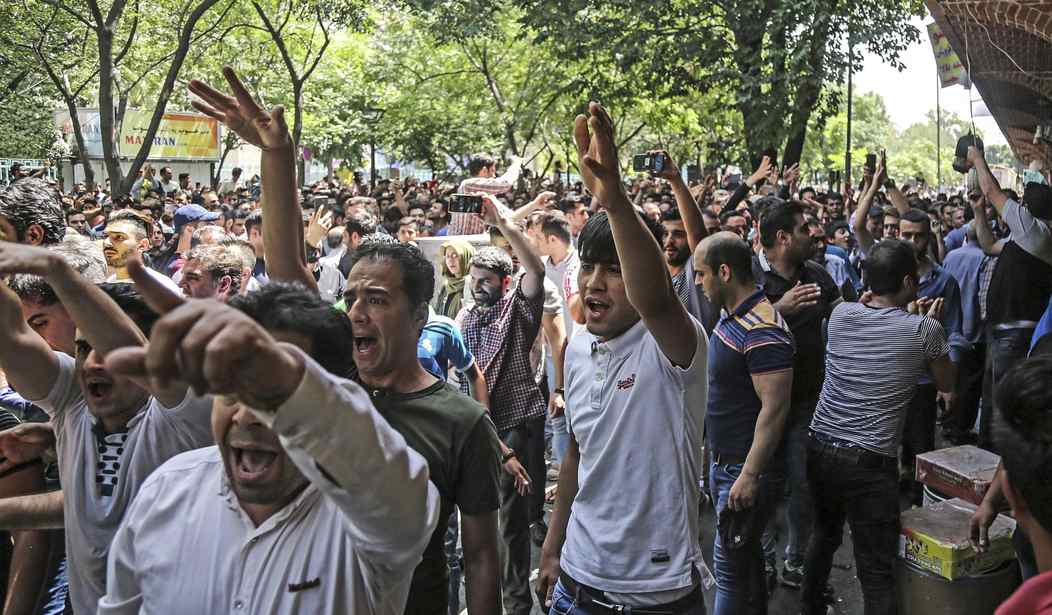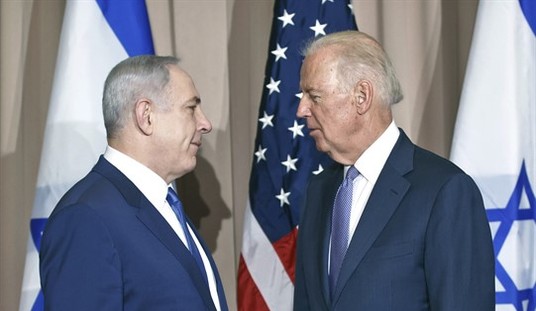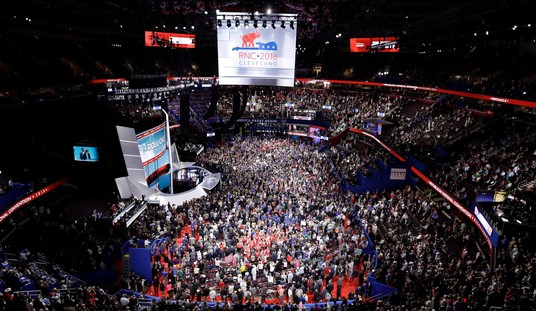At some point, Trump and his brain trust will have to ask the basic questions about Iran. As the deadline for the latest round of petroleum sanctions approaches, the punditocracy obsesses over how vicious the economic pressure should be, and over how to use instruments like SWIFT against the mullahs. The government seems similarly obsessed, above all the three Marines who seem to have Trump’s greatest trust and confidence: Mattis, Kelly, and Dunford.
This obsession is misguided. It does not address the central issue, which is how to best promote the downfall of the Islamic Republic.
That is a political issue, not a matter of economic engineering. The pundits and, apparently, the key policymakers seem to believe that there is a level of economic and social misery that will lead to the fall of the Shi’ite tyranny and its replacement by a freely elected government that will end Iran’s ongoing war against us. A government that will work to advance our interests in the region: End support for terrorist groups like Hezbollah, Hamas, Islamic Jihad, and al-Qaeda; pull Iranian troops out of Syria; stop meddling in Iraq, etc.
I think this belief is wrong. Most successful revolutions reach peak force when the social and economic conditions are improving, not getting worse and worse. It’s commonplace to quote Marie Antoinette’s “let them eat cake” as the incarnation of the doomed French tyrant’s indifference to the suffering of the revolutionary masses, but the overthrow of the Bourbons wasn’t accomplished by hungry proletarians; it was done by optimistic young citizens, mostly bourgeois, who believed they could change the world.
Similarly, Mussolini’s followers in the early 1920s came in large part from a rising middle class, and presented themselves as an expression of Italian creativity, virility, and courage. Il Duce wasn’t offering pasta to the starving masses; revolutions are carried out by people who want to change the world, not feed their families and neighbors. In Germany, Hitler rose with economic improvement, not alongside the worst moments of the crash of ’29.
If revolution were the consequence of misery, we’d see massive uprisings in North Korea and much of sub-Saharan Africa, as in Cuba. We’d expect Venezuela to join the heap of failed states most any day. But these revolutionary events are not taking place. Turmoil and misery abound, but the regimes hold fast.
Look at Iran today and you will see the streets full of protesters who want the end of the forty-year-old theocracy. Teachers, truck drivers, and bazaaris are all striking. Students, especially at universities, are leaving their classes to demonstrate against the regime. Even the Iranian Arabs in the oil-rich area near Basra are walking off the job, threatening natural gas and oil production. They are deliberately impoverishing themselves in order to promote revolution. It’s not a demand for higher income; it is mostly a revolt against a failed regime and in favor of greater freedom.
If you want to bring down the Islamic Republic, which should be the goal of a sensible Iran policy, you should actively support the strikers and demonstrators, rather than increase the misery of the people. How should you do that? First of all, by remembering how we did it to the Soviet Union. The dissidents needed better information about what was going on all over the empire. They needed to communicate with one another, and we enabled that by direct broadcasting via Radio Free Europe, Voice of America, and Radio Liberty. Moreover, we provided them with fax machines, the technological breakthrough that created an active network throughout the Soviet bloc.
Today, we should actively strengthen our Farsi-language radio and television broadcasting, and provide the millions of Iranian dissidents with technology to thwart internet censorship and expose the myriad failures of the mullahcracy.
We have nothing approaching such a strategy, nor are we even in ongoing collaboration with the dissidents. This must be reckoned a significant failure.
If we could effectively support the relatively small number of anti-Soviet revolutionaries, we can surely do the same for the enormous number of anti-mullah Iranians.
Economic warfare and fierce speeches alone will not bring down the Islamic Republic. Our greatest weapon is political, as the Soviet example proved. But our strategists, administration after administration, are unwilling to support revolution in Tehran, and there is no sign a change is in the works. It will not “just happen” when some imagined economic/social tipping point is passed.
Obama wanted a strategic alliance with Iran, which he infamously accomplished. Trump and Pompeo don’t want that. But they have still not embraced a strategy to defeat Khamenei and his henchmen. They say they want a change in regime behavior, but they cannot have that without regime change. They can accomplish that, but only if they fight for it.








Join the conversation as a VIP Member